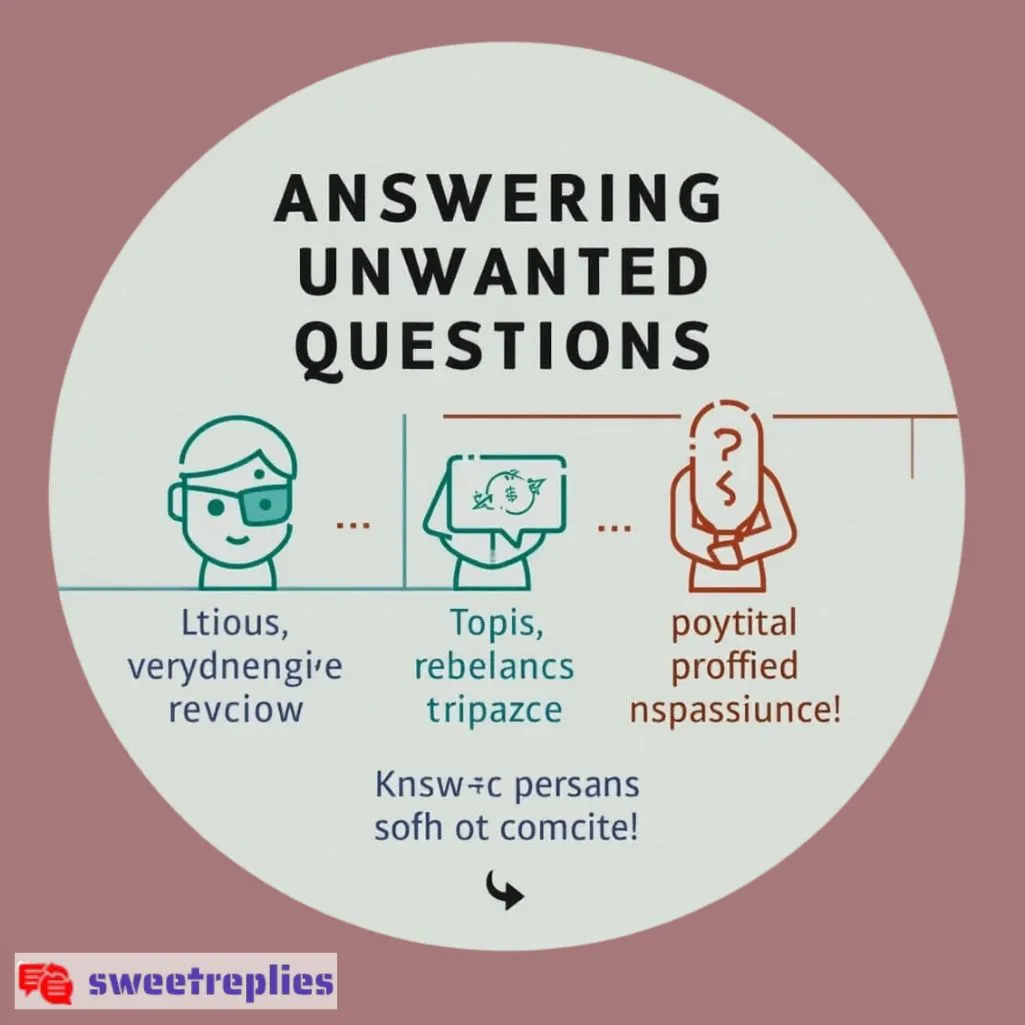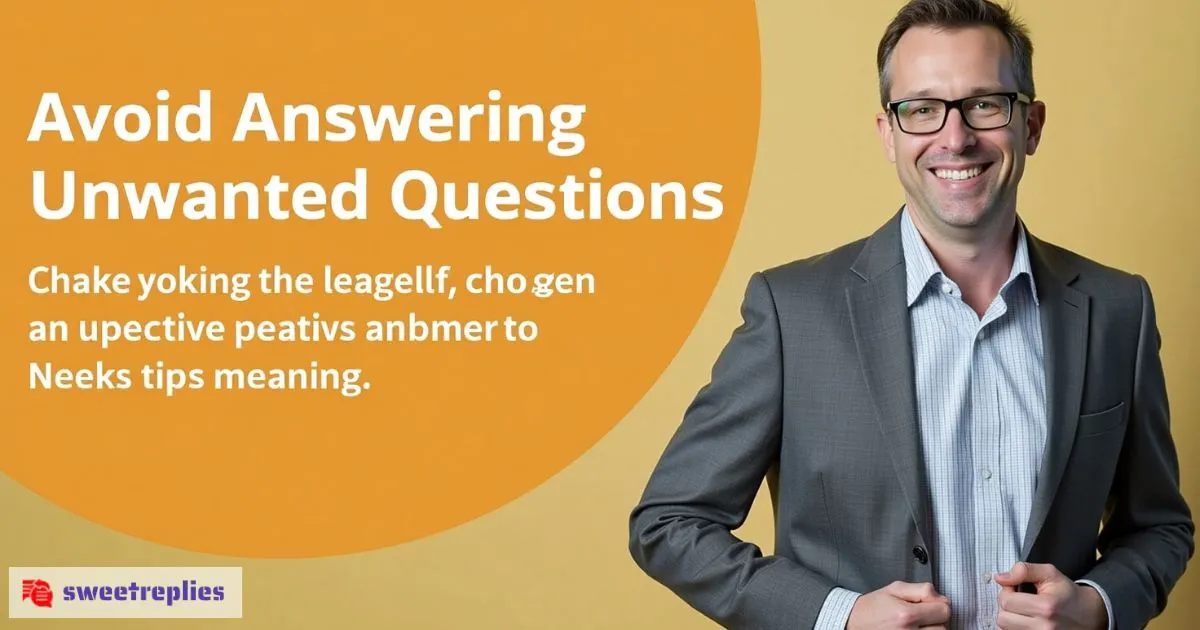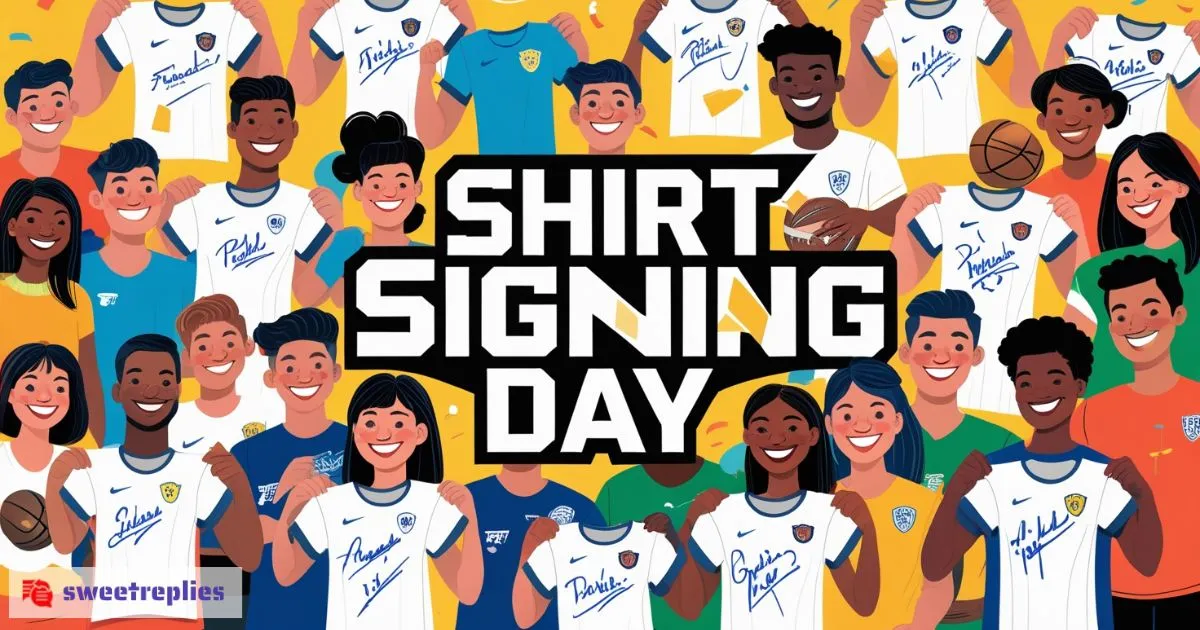It’s frustrating when unwanted questions sneak into conversations when at family gatherings or during workplace chatter. Questions like “Why aren’t you married yet?” or “How much do you make?” can feel like a high-stakes interrogation instead of simple small talk.
The good news? You don’t have to answer every question thrown your way. Using the right approach lets you gracefully sidestep those intrusive inquiries while staying confident and kind.
This way, you can save time, save energy, and most importantly, save peace of mind. In this post, I’m sharing phrases to help you avoid answering unwanted questions with grace so you can take control of your conversations without stress. Ready to learn how to handle those tricky moments smoothly? Let’s begin!
How to Avoid Answering Unwanted Questions?

To avoid answering unwanted questions, stay calm and use clear, respectful phrases that protect your privacy without offending. It’s all about setting boundaries while maintaining positive communication.
Politely Deflect the Question
Sometimes, the best way to avoid answering is to gently steer away from the question without offending anyone. This keeps the conversation smooth and shows respect for your own boundaries.
- Say something like, “That’s an interesting question, but I’m not ready to talk about it right now.”
- Use phrases such as, “Let’s focus on something else for now,” to shift attention politely.
Using polite deflection helps you maintain control without hurting feelings. It’s a respectful way to protect your privacy while keeping the conversation comfortable for both sides.
Use Humor to Lighten the Mood
A bit of humor can make tricky conversations less stressful and show you’re confident without being rude. It helps break tension and keeps things friendly.
- Try a playful joke like, “If I told you, I’d have to erase your memory!” to keep it light.
- Laugh gently and say, “I’ll save that story for another day!” to keep the mood easygoing.
Humor works as a great icebreaker and can soften awkward moments. It shows emotional intelligence by turning potential conflict into lighthearted connection.
Respond with Vagueness
Being vague can protect your privacy while still engaging in the conversation. It gives you control without being blunt or unfriendly.
- Use answers like, “Oh, you know, just the usual stuff,” to avoid specifics.
- Say, “That’s a long story for another time,” to keep things open but undefined.
Vague responses keep you in charge of what you share without closing the door completely. They give you space while still being polite and conversational.
Turn the Question Around
Flipping the question back to the asker shows interest in them and gently avoids your own answer. It keeps the conversation balanced and less awkward.
- Reply with, “Why do you ask?” or “What do you think about it?” to invite them to share first.
- Use, “I’m curious what’s your take on that?” to engage without revealing too much.
Turning the question around shifts focus and encourages open dialogue. It helps you stay engaged while setting boundaries naturally.
Redirect the Topic Entirely
Changing the subject can quickly move the focus away from something you don’t want to discuss. This tactic keeps communication smooth and comfortable.
- Say, “Speaking of that, did you hear about…” to introduce a new topic.
- Ask a question about something unrelated like, “By the way, how was your weekend?” to shift attention.
Redirecting lets you guide the conversation to safer ground without awkward pauses. It’s an easy way to keep things flowing and positive.
Politely Decline to Answer
Sometimes, the best approach is to clearly but kindly say you don’t want to answer. This respects your boundaries while keeping the conversation respectful.
- Use phrases like, “I prefer to keep that private, thanks for understanding.”
- Say, “I’m not comfortable discussing that right now, hope you don’t mind.”
Politely declining to answer sets clear limits without offending others. It’s an honest, mature way to protect your personal space and feelings.
Use Silence as a Tool
Sometimes, saying nothing can be the most powerful way to avoid answering an unwanted question. Silence gives you time to think and lets the other person reconsider their approach.
- Pause before responding to show you’re thinking, not avoiding.
- Use a gentle smile or nod instead of words to acknowledge without answering.
Silence can speak volumes without causing offense. It creates space for both sides to breathe and keeps the conversation calm and respectful.
Give an-Answer Response
A non-answer is a way to respond that doesn’t actually answer the question but keeps the conversation going. It’s useful when you want to stay polite but avoid details.
- Say something like, “That’s a good question, I’ll have to think about it.”
- Use a broad statement such as, “Things are going okay, thanks for asking!”
Non-answers help you stay engaged without sharing more than you want. They keep communication friendly while protecting your privacy.
Phrases To Avoid Answering Unwanted Questions

Sometimes, people ask questions that feel too personal or uncomfortable. Using the right phrases can help you avoid answering without hurting feelings or causing tension.
Polite and Neutral Phrases
When you want to avoid unwanted questions without causing offense, polite and neutral phrases work best. They show respect and help you stay calm.
- Keep your tone soft but firm.
- Use phrases that don’t invite more questions.
These responses let you protect your privacy while keeping the conversation smooth. They help maintain good communication and respect personal space.
Funny and Humorous Phrase
Funny replies can lighten the mood and make tricky situations easier to handle. Humor can break tension and keep things friendly.
- Use light jokes that aren’t harmful.
- Match your humor to the situation and person.
With funny phrases, you show emotional intelligence and keep the door open for future interactions without feeling pressured.
Vague or Deflective Phrases
Sometimes, giving a vague or deflective answer is the best way to handle unwanted questions. It keeps things neutral and moves the focus elsewhere.
- Avoid detailed answers that invite follow-ups.
- Shift the topic smoothly to something else.
This approach respects relationship boundaries and helps maintain a positive connection without confrontation.
Assertive Phrases for Setting Boundaries
Being assertive is key when you need to protect your privacy and communicate your limits clearly. It helps handle rejection gently.
- Use “I” statements to express your feelings.
- Be direct but respectful.
Assertive replies build healthy relationship boundaries and show others you value your personal space and emotional well-being.
Phrases That Redirect the Conversation
Redirecting the conversation helps steer away from uncomfortable topics while keeping communication open. It’s a great way to offer support without answering directly.
- Ask a question related to a different topic.
- Compliment or acknowledge the person before changing the subject.
This method balances respect and understanding, allowing the conversation to continue positively without pressure.
Gentle and Empathetic Phrases
Using gentle and empathetic phrases helps you avoid unwanted questions while showing you care about the other person’s feelings. This approach keeps communication warm and respectful.
- Acknowledge their interest without sharing too much.
- Use kind words to soften your refusal.
These replies maintain emotional intelligence and support, helping to keep the relationship strong even when setting limits.
Direct but Polite Refusals
Sometimes, the best way to handle unwanted questions is to be clear and polite about not wanting to answer. This shows confidence and respect for yourself and others.
- Say no thank you or I’d rather not say.
- Keep your tone calm and friendly.
Direct but polite refusals help maintain healthy relationship boundaries while showing you respect both your own space and the other person’s curiosity.
Final Words
Handling unwanted questions with care and confidence helps you protect your privacy while keeping relationships positive. Using polite, humorous, or assertive phrases lets you set clear boundaries without creating awkwardness. Remember, good communication and emotional intelligence go a long way in maintaining respect and understanding in any conversation.
Key Insight
1. How to Avoid Questions About Your Personal Life?
Politely redirect the conversation or give vague answers that don’t invite follow-ups. You can also set gentle boundaries by saying you prefer to keep some things private.
2. How to Avoid Answering Personal Questions at Work?
Use neutral and professional replies that keep the focus on work topics. It’s okay to say you’re not comfortable sharing personal details in the workplace.
3. How Do I Stay Calm When Someone Asks a Question I Don’t Like?
Take a deep breath and respond with kindness or humor. Remember, you don’t owe anyone an answer if it makes you uncomfortable.
4. How Can I Avoid Answering Personal Questions During a Job Interview?
Politely steer the conversation back to your skills and experience. You can say something like, “I’d prefer to focus on how I can contribute to the company.”
5. How Do I Politely Refuse to Answer a Question Without Offending Someone?
Use respectful phrases like, “I’d rather not discuss that” or “I appreciate your interest, but I prefer to keep that private.” This shows you respect the asker while protecting your boundaries.

I’m Liam Quill, the writer behind SweetReplies.com, where words come with meaning, heart, and a little charm. I specialize in crafting the perfect replies whether it’s a sweet thank-you message, a thoughtful wish, or a clever response that leaves an impression. With every line I write, my goal is simple: to help you express yourself in a way that feels just right. Because the right words? They make all the difference.




